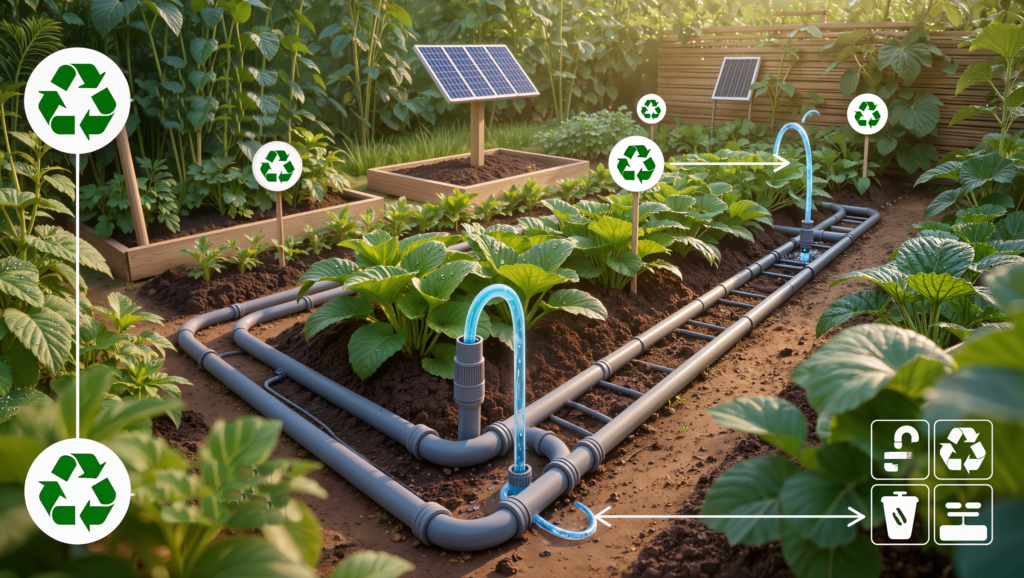In the world of traditional medicine, few herbs hold as revered a place as Guduchi (Tinospora cordifolia). Dubbed “Amrita” (divine nectar) in Sanskrit, Guduchi is prized in Ayurveda as a premier rasayana—a rejuvenator that boosts immunity, calms inflammation, and restores balance in body and mind. But how exactly does this climbing vine work as an immune modulator? Is there hard science behind its reputation, or just ancient myth? Here’s a deep dive into the research, tradition, and practical uses of Guduchi as an immune-balancing powerhouse.
Guduchi in Ayurveda: The “Divine Nectar”
For centuries, Guduchi has stood at the center of Ayurvedic healing. Traditional texts describe Guduchi as:
- A rasayana—used to promote longevity, strength, vitality, and resistance to disease.
- Tridosha balancing—helping harmonize Vata, Pitta, and Kapha.
- Detoxifying and rejuvenating—supporting the liver, purifying the blood, and protecting against fevers and infections.
Its Sanskrit names—Amrita (“nectar of immortality”) and Giloy (“elixir of life”)—reflect its legendary role as a panacea.
What Modern Science Reveals: Immune-Modulating Properties
1. Powerful Immunomodulation
Guduchi is unique because it doesn’t just stimulate or suppress the immune system indiscriminately—it modulates, enhancing deficient immune activity and calming overactive responses. Scientific studies reveal:
- Boosting key immune functions: Guduchi enhances phagocytic activity (the ability of white blood cells to engulf and kill pathogens), raises antibody production, and optimizes the activity of immune cells like macrophages, neutrophils, and lymphocytes.
- Regulating cytokines: Guduchi can tamp down excessive inflammation by reducing pro-inflammatory cytokines like IL-1β, TNF-α, and IL-6—critical in diseases marked by chronic inflammation or “cytokine storms” (as seen in severe viral infections).
| Immune Action | Guduchi’s Effect | Impact |
|---|---|---|
| Phagocytic enhancement | Boosts bacteria, virus, and toxin clearance by immune cells | Infection defense |
| Cytokine regulation | Increases anti-inflammatory, decreases excessive pro-inflammatory | Inflammation control |
| Antibody production | Increases antibody (IgG, IgM) levels | Infection, allergy protection |
| Natural killer cell boost | Enhances body’s anti-tumor and anti-viral responses | Cancer/virus defense |
Human and animal studies confirm Guduchi stimulates both innate (first-line) and adaptive (long-term) immune responses, helping the body fight infections while maintaining immune balance.
2. Support During Viral and Bacterial Infections
Guduchi’s benefits are more than theoretical—it’s been shown to enhance resilience against bacterial (e.g., E. coli, Staphylococcus) and viral threats. Its ability to strengthen various immune components makes it especially valuable during pandemics or in people with chronic infections. The Indian Ministry of AYUSH recommended Guduchi for immune support during the COVID-19 pandemic.
3. Chronic Inflammation, Autoimmunity & Allergies
Chronic, unbalanced inflammation and autoimmunity are central to many modern illnesses. Guduchi’s anti-inflammatory action stems from:
- Blocking COX and LOX enzymes: Reduced production of inflammatory prostaglandins and leukotrienes.
- Suppressing cellular markers (TNF-α, IL-1β): Direct inhibition of molecules that fuel joint, gut, and tissue inflammation.
- Regulating immune cell activity: Preventing overreaction that can spiral into autoimmunity or allergy (asthma, allergic rhinitis, arthritis).
4. Wound Healing and Recovery
Guduchi has been shown in clinical and preclinical studies to aid wound healing—especially in diabetic foot ulcers—thanks to its combined immune-balancing, antioxidant, and anti-inflammatory actions.
The Bioactive Compounds: What’s Inside Guduchi?
Guduchi contains a suite of immunologically active molecules:
- Polysaccharides (notably G1-4A): Key modulators of immune and anti-infective activity.
- Alkaloids: (e.g., magnoflorine, berberine) contribute to both immune-stimulatory and anti-inflammatory effects.
- Diterpenoids, glycosides, and sterols: Add to the antioxidant, hepatoprotective, and anti-inflammatory activity.
- Micronutrients: Including copper, calcium, iron, manganese, zinc, and phosphorus—support essential immune cell function.
Collectively, these help Guduchi “fine-tune” the immune system, enabling adaptive responses to both insufficient and excessive immune activity.
Safety and Clinical Evidence
- Proven safety: Guduchi is considered very safe in traditional texts and modern acute/chronic toxicity studies—even at high doses it rarely causes adverse effects. The Indian Pharmacopoeia and Ministry of AYUSH consider it non-toxic, provided dosing guidelines are followed.
- Clinical support: Multiple human studies (see sources) support Guduchi’s effectiveness for allergies, respiratory tract infections, diabetes-related wounds, liver support, fever, and general immunity.
- Caveats: Rare reports of digestive upset, headache, or mild allergy. High doses may be risky in those with autoimmune conditions, so always consult your healthcare provider before long-term use.
How to Use Guduchi
- Forms: Available as fresh stems/leaves, powders (churna), extracts, capsules/tablets, decoctions (kashayam), and in traditional Ayurvedic formulas.
- Dosage: Common doses range from 300–600 mg of extract (standardized to polysaccharides or withanosides) up to 3–5 g/day as the crude powder. Always follow product or practitioner guidance.
- Best practice: Combine with black pepper, ginger, or honey for improved absorption and synergy.
Other Benefits: Beyond Immunity
Guduchi’s benefits don’t stop at the immune system:
- Adaptogen: Reduces effects of physical and psychological stress—restoring calm, energy, and resilience.
- Hepatoprotective: Supports liver detox, recovery, and health—traditionally used for jaundice and as an antidote for toxins.
- Anti-diabetic: Helps regulate blood sugar and reduce diabetic complications, including wound healing.
- Neuroprotective: Animal studies suggest nerve-regeneration and mental clarity effects, currently under investigation.
- Anti-cancer activity: Early lab research shows Guduchi extracts influence cell signaling in tumors, though more clinical evidence is needed.
Guduchi in the Modern World
With rising rates of immune dysfunction, chronic inflammation, and antibiotic resistance, Guduchi offers a rare “balancing” approach: it strengthens weak immunity, calms overactivity, and offers broad-spectrum adaptogenic effects. Its widespread acceptance in Ayurvedic and now integrative medicine worldwide is a nod to both its time-tested safety and emerging scientific validation.
Final Thoughts: An Herbal Ally for Immune Wisdom
Guduchi, the “Divine Nectar” herb, isn’t just another immune stimulant—it’s a full-spectrum immunomodulator, adaptogen, and rejuvenator. Whether you are looking to bolster your immune defenses, recover from chronic illness, or simply age with greater resilience, this ancient vine is an herb worth knowing and respecting.
As always, talk to an Ayurvedic practitioner or integrative physician for personalized dosage, sourcing, and safety advice. Used with care and wisdom, Guduchi may very well live up to its legendary name as an elixir of life.








